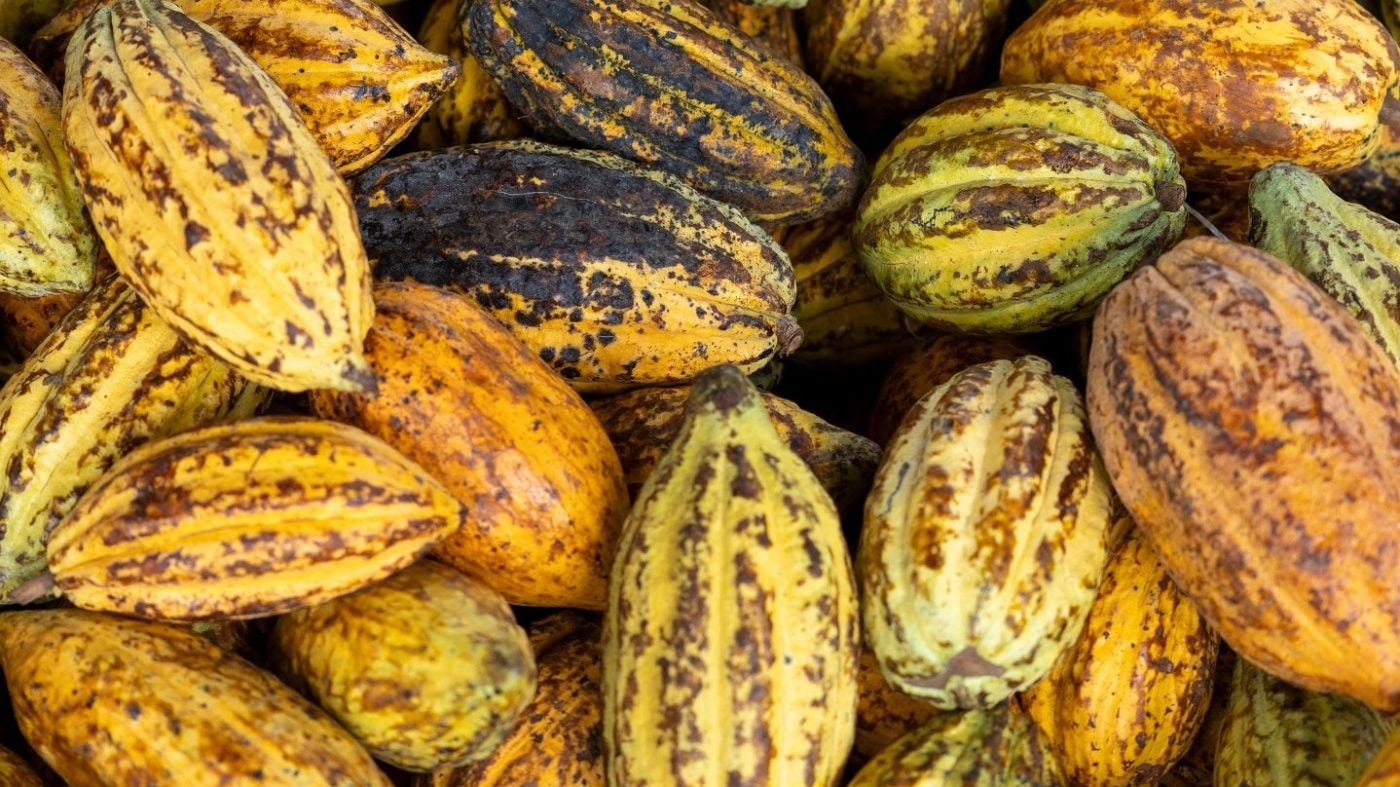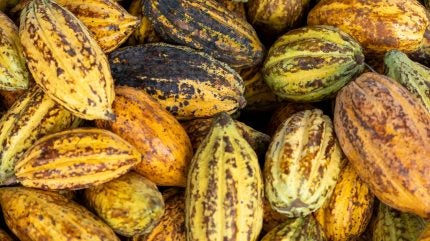

Ghana has followed fellow major cocoa producer Côte d’Ivoire in raising the farmgate price of the commodity.
Nana Addo Dankwa Akufo-Addo, Ghana’s president, increased the price by 58.26% from 20,928 cedis ($1,560) to 33,120 cedis per tonne for the rest of the 2023/24 cocoa season.
This figure translates into 2,070 cedis per bag of 64 kg gross weight, a statement read.
Ghana, the second-biggest cocoa producer in the world, behind Côte d’Ivoire, produces roughly 15% of cocoa beans globally. In recent weeks, cocoa futures have hit record highs due to pressure on global supplies from crop disease and poor weather.
“The increase in the producer price of cocoa has become necessary to enhance the income of cocoa farmers in line with the vision of the NPP government and in response to the rising prices of cocoa on the international market,” according to industry regulator Cocobod.
GlobalData, Just Food’s parent, predicts a fall in supplies of around 8% in the 2023-2024 season compared to the previous 12 months, with the losses primarily attributable to problems plaguing Côte d’Ivoire and Ghana.
Access the most comprehensive Company Profiles
on the market, powered by GlobalData. Save hours of research. Gain competitive edge.

Company Profile – free
sample
Your download email will arrive shortly
We are confident about the
unique
quality of our Company Profiles. However, we want you to make the most
beneficial
decision for your business, so we offer a free sample that you can download by
submitting the below form
By GlobalData
Two diseases – black pod disease and cacao swollen chute virus – have hit cacao trees in recent quarters. They had been present in Ghana in recent years and have now also spread to Cote d’Ivoire.
The limited availability has translated into an uncertain market with rapidly increasing prices. “Over the last twelve months to the third week of March, cocoa bean prices have increased by 166% and 189%, respectively, in the New York and London cocoa bean futures markets,” GlobalData agribusiness analyst Gerard Stapleton said.
“Over the last eighteen months (since October 2022) the respective price increases were 221% and 223%. Before then, prices had remained relatively flat over the preceding three-and-a-half years.”
Globally, the predicted net output for the 2023-2024 season is 4.5 million tonnes, a reduction of around 340,000 tonnes compared to last year. Stapleton called it “a significant shortfall”, noting that “there is going to be some impact on demand.” He expects this to be a reduction of around 4%, as shoppers are deterred by higher price points.

